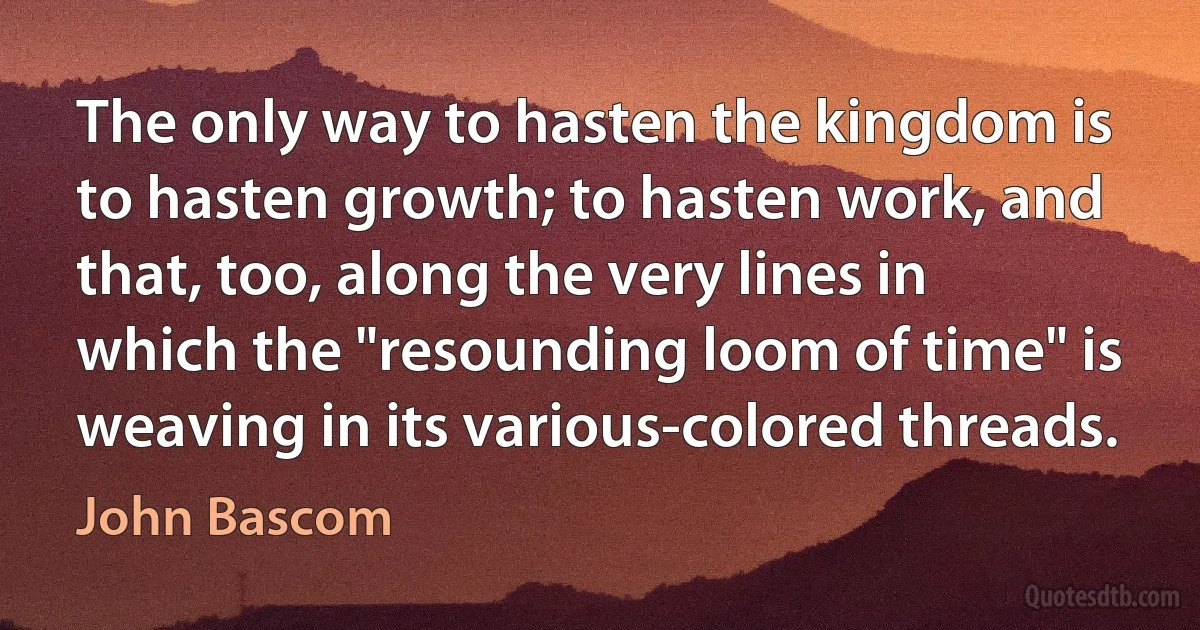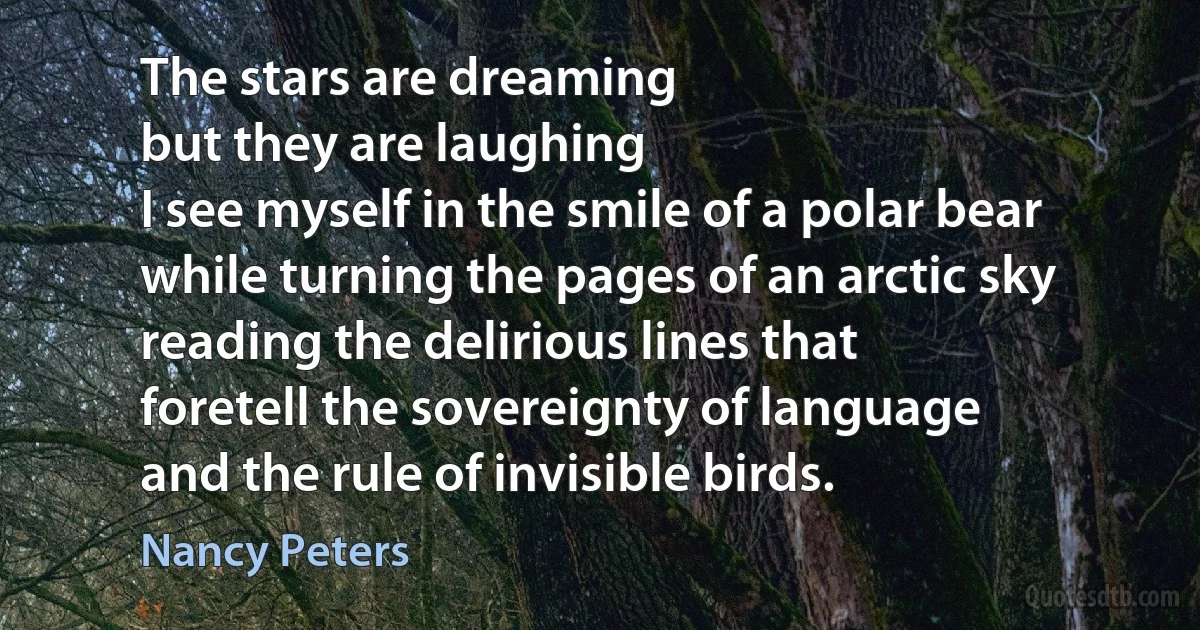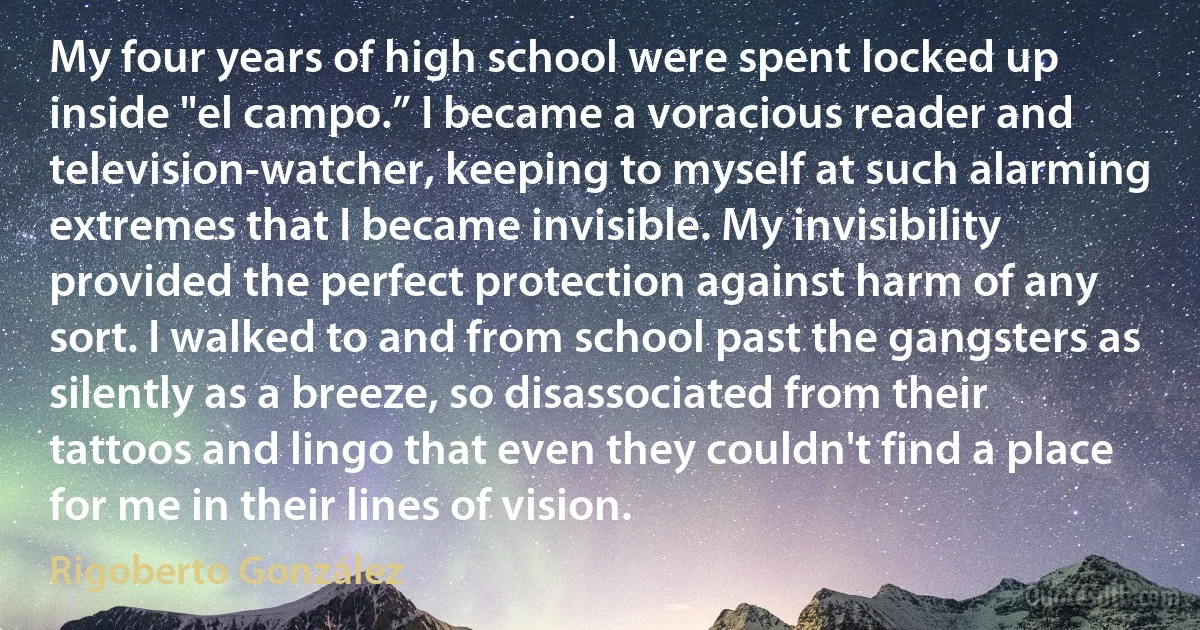Lines Quotes - page 56
Even in a time of ferment and necessary social change-especially in such time-the most important thing about the legal profession is that we inherit the tradition of seven or eight centuries of continuous concern for the institutions and aspirations-for the processes, ideals and sense of right and justice-that make for a free and civilized society. It is not the age of the profession that matters... What matters most is that through the centuries the men of law have been persistently concerned with the resolution of disputes... in ways that enable society to achieve its goals with a minimum of force and a maximum of reason. Our own era has urgent need for lawyers not to resist change but to channel the vital forces at work in the community along the lines of justice and reason, on a scale and at a pace heretofore unprecedented. Only thus can we fulfil our ancient heritage.

Archibald Cox
Speak the speech, I pray you, as I pronounced it to you -- tripping on the tongue but if you mouth it, as many of your players do, I had as Leif the town-crier spoke my lines. Nor do not saw the air too much with your hand, thus, but use all gently for in the very torrent, tempest, and as I may say, the whirlwind of your passion, you must acquire and beget a temperance that may give it smoothness.

William Shakespeare
Now stand you on the top of happy hours,
And many maiden gardens yet unset,
With virtuous wish would bear you living flowers,
Much liker than your painted counterfeit:
So should the lines of life that life repair
Which this, Time's pencil, or my pupil pen
Neither in inward worth nor outward fair
Can make you live your self in eyes of men.

William Shakespeare
A scene that has often come into my mind, both sleeping and waking - I am standing in the wings of a theatre waiting for my cue to go onstage. As I stand there I can hear the play proceeding, and suddenly it dawns on me that the lines I have learnt are not in this play at all, but belong to quite a different one. Panic seizes me; I wonder frenziedly what should I do. Then I get my cue. Stumbling, falling over the unfamiliar scenery, I make my way onto the stage, and then look for guidance to the prompter, whose head I can just see rising out of the floor-boards. Alas he only signals helplessly to me and I realise of course that his script is different from mine. I begin to speak my lines, but they are incomprehensible to the other actors and abhorrent to the audience, who begin to hiss and shout: "Get off the stage!”, "Let the play go on!”, "You're interrupting!”.

Malcolm Muggeridge
In Europe Negro soldiers are used principally as service troops ·behind the ·lines, and I state now, on the authority of many American officers, that they ·were lazy; that they would not work; that it was a mistake to send them to Europe, and furthermore, that. they should be returned from Europe ar:d sent to the Pacific, where there are races of color.

James Eastland
This is the fairest picture on our planet, the most enchanting to look upon, the most satisfying to the eye and spirit. To see the sun sink down, drowned in his pink and purple and golden floods, and overwhelm Florence with tides of color that make all the sharp lines dim and faint and turn the solid city to a city of dreams, is a sight to stir the coldest nature, and make a sympathetic one drunk with ecstasy.

Mark Twain
Many similar views were also expressed in the Sanskrit Commission Report written under the Nehru government in the 1950s. That report declares: "The State in ancient India, it must be specially pointed out, freely patronised education establishments, but left them to develop on their own lines, without any interference or control. It says that until the British disruption, the salient features of our traditional education included: 'oral instruction, insistence on moral discipline and character-building, freedom in the matter of the courses of study, absence of extraneous control...' ... We can never insist too strongly on this signal fact that Sanskrit has been the Great Unifying Force of India, and that India with its nearly 400 millions of people is One Country, and not half a dozen or more countries, only because of Sanskrit.'

Rajiv Malhotra
What an unreliable thing is time--when I want it to fly, the hours stick to me like glue. And what a changeable thing, too. Time is the twine to tie our lives into parcels of years and months. Or a rubber band stretched to suit our fancy. Time can be the pretty ribbon in a little girl's hair. Or the lines in your face, stealing your youthful colour and your hair. .... But in the end, time is a noose around the neck, strangling slowly.

Rohinton Mistry
Scholars are still in search of the exact meaning of certain speeches in each of Shakespeare's great tragedies - and we should like to assume that those who saw these plays for the first time did not have perfect understanding of all of the lines - but so great was Shakespeare's power to conceive of action from which thought and feeling can be readily inferred that all of us know Lear, Hamlet, and Macbeth more intimately than we know many men whose remarks we understand perfectly.

Norman Maclean
By them saying I should fall in line is an insult. I'm not asking for an invitation. I think they should get behind me, not fall in line like sheep. They're so paranoid, it makes me think they have weak candidates and they're afraid. The more they attack, the more they show their hand, and I mean that across party lines. It's not politics as usual. We're running a different campaign, and they're scared to death.

Scott Ashjian
This counterterrorism campaign will be waged through a steady, relentless effort to take out ISIL wherever they exist, using our air power and our support for partner forces on the ground. This strategy of taking out terrorists who threaten us, while supporting partners on the front lines, is one that we have successfully pursued in Yemen and Somalia for years. And it is consistent with the approach I outlined earlier this year.

Barack Obama



